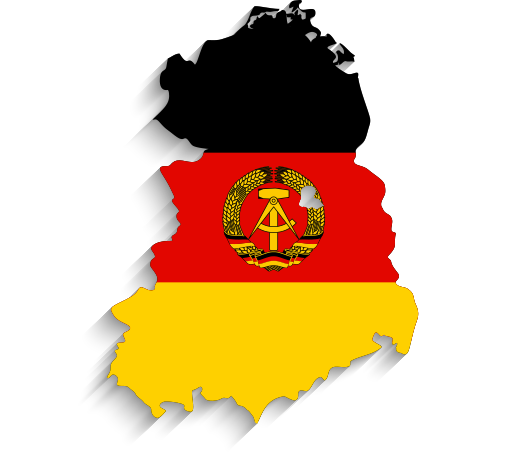(Grant Agreement n. 669194)
(Leipzig, 3/6/1924 - Zeuthen, 6/10/2016)
Minister - Ministry of Foreign Trade (1965-1986)Member - Working Group Balance of Payments (1974-1986)

Despite being in office for more than two decades, in economic relations to the West, Horst Sölle remained a rather colorless person. In the first few years after the diplomatic recognition of the GDR he paid a couple of state visits and signed the first economic contracts with the West. However, they were negotiated by the ministerial elite and his state secretary Gerhard Beil who shaped the day-to-day business with the West most. He did not develop an independent line on the GDR’s dealing with the West. Within the CMEA, especially in the Standing Commission on Foreign Trade, he advocated a strict policy of non-recognition towards the EEC and even proposed to retaliate the policies of the Common Market (resulting from the Davignon plan) by decreasing trade with the integrated West.
|
Werner Jarowinsky was a longstanding economic functionary of the GDR. Formally, his area of responsibility as Secretary of the Central Committee included foreign trade, however, on the party-level the Economic Secretary, Günter Mittag, mo... |
|
Günter Mittag was the economic mastermind of the Socialist Unity Party of Germany. Within the provisions set by Erich Honecker he executed control over the East German economy. He served as Secretary of the Central Committee for Economics... |
|
Comparable to the SED’s Secretary of the Central Committee for Trade, Supply and Foreign Trade Werner Jarowinsky, the head of the Department of Trade, Supply and Foreign Trade had hardly any actual influence on foreign trade and did not ... |
|
While the Minister of Foreign Trade, Horst Sölle, was a rather colorless person in the GDR’s Western Trade, State Secretary and later Deputy Minister Gerhard Beil executed a great deal of the ministerial day-to day business. He was ... |
|
Letter by Horst Tschanter to Paul Verner
SAPMO-BArch, DY 30/IV 2/2.036/71 | Bl. 93–94
In the late 1970s, Horst Tschanter was frustrated about the CMEA’s inability to negotiate a treaty with the EEC and recommended a reevaluation of the GDR's position toward the EEC. - Available only in the archive: https://www.bundesarchiv.de |
|
Politburo Template. Decision on the estabishment of technical contacts between companies and institutions of the GDR with EEC organs
SAPMO-BArch, DY 30/J IV 2/2A/1864 | Bl. 65–75
When the EEC's Common commercial Policy went into effect, it immediately showed repercussions on East German exports to the common Market. Against this backdrop, on 11.03.1975 the Politburo reluctantly agreed to commence "technical contacts" with the EEC Commission as suggested by the proposal originally developed in the Ministry of Foreign Trade. - Available only in the archive: https://www.bundesarchiv.de The decision of the Politburo is available in the digitalized final version of the protocol.
|
|
Horst Sölle to Erich Honecker, Information on a meeting of the ministers during the fifty-first session of the CMEA Executive commitee's Standing Commission on Foreign Trade
SAPMO-BArch, DY 3023/1276 | Bl. 199–203
In December 1977, the European Council had decided that all countries exporting steel to the Common Market had to conclude bilateral agreements so that the EEC could impose price discipline. The GDR held the view that these sectoral agreements on quotas and minimum prices would go beyond “technical contacts.” Again, East Berlin hoped for concerted action by the CMEA members. At the next meeting of the CMEA Executive Committee’s Standing Commission on Foreign Trade, Foreign Trade Minister Horst Sölle proposed to consider if the threat or actual shifting of the CMEA’s steel imports from the Common Market to other suppliers could be used as a means of commercial policy. - Available only in the archive: https://www.bundesarchiv.de [Maybe digitalized in the future] |
